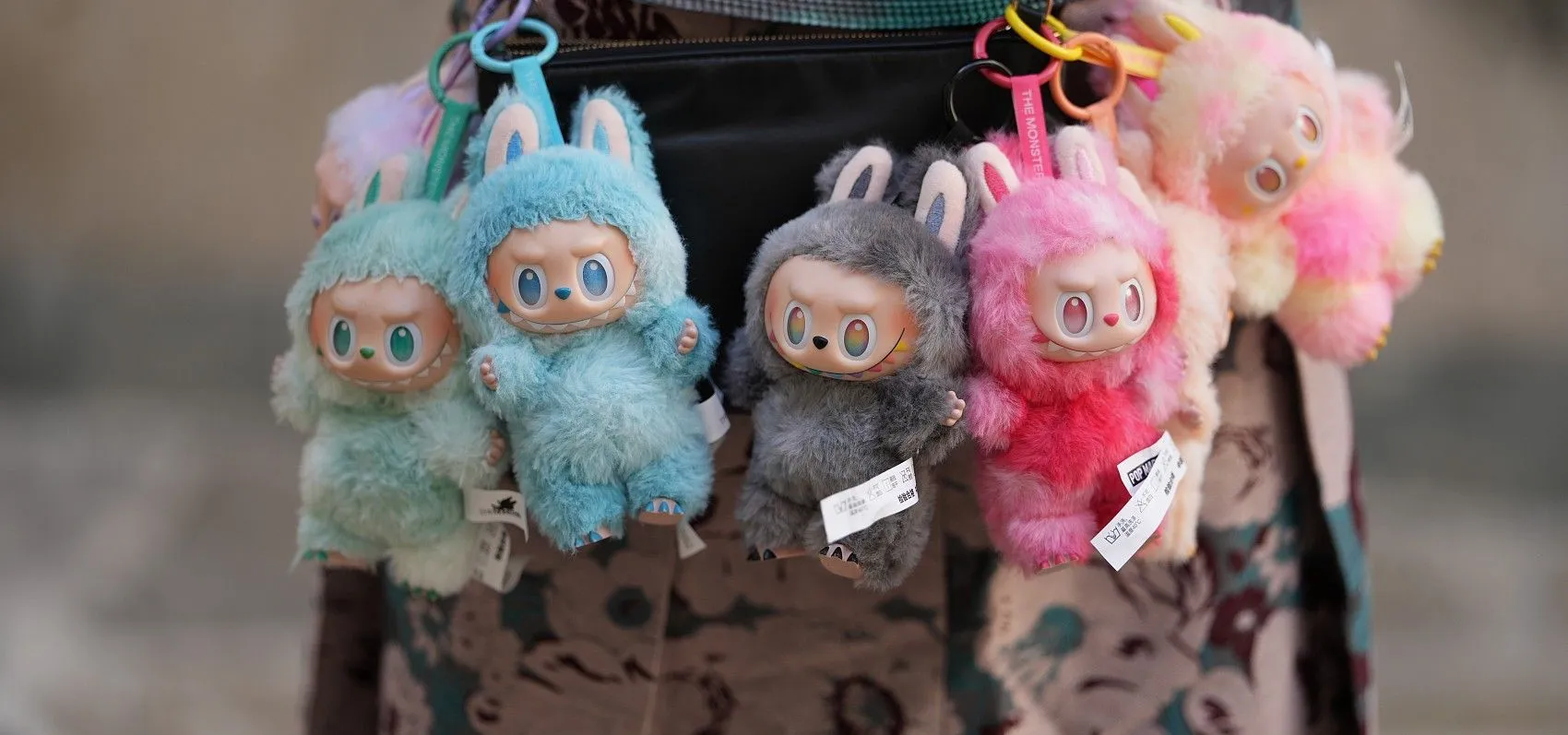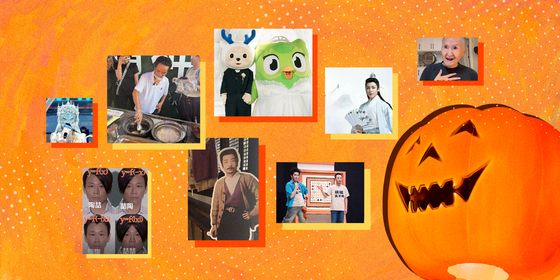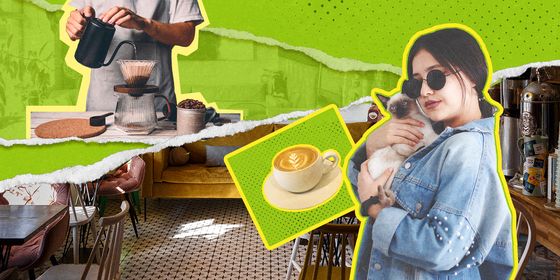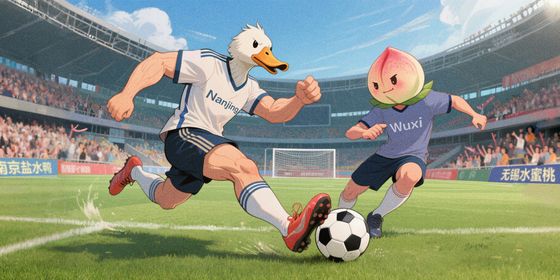As fans scramble to get their hands on a coveted Labubu, discover the viral slang and memes inspired by these “ugly-cute” dolls that have taken the world by storm
A furry little monster with pointy ears and nine sharp fangs is ripping through the international market—not with claws, but with its quirky appearance and staggering resale prices. If you haven’t heard, Labubu has taken the world by storm, sparking a global frenzy seemingly out of nowhere.
Branches of China’s Pop Mart toy stores, from Los Angeles to London, Milan to Tokyo, are drawing long lines of fans eager to get their hands on a figurine. Consistently sold out both online and in stores, people are unanimously crying out: “一bu难求 (Yì bu nán qiú), it’s nearly impossible to get even one ‘bu’!”
Created by Hong Kong artist Kasing Lung, these palm-sized furry pendants, each packed in a mystery blind box, have also charmed global celebrities. Their enthusiasm for showing off their toy “babies” (晒娃 shàiwá) and filming unboxing videos (开箱视频 kāixiāng shìpín) has further boosted Pop Mart’s stock, driving its valuation past 300 billion Hong Kong dollars.
For fans, it’s the social capital tied to these low-cost toys that matters more. Some even joke about the supreme status of Labubu:
I didn’t buy Hermès for the bag…I bought it to give my Labubu a proper home.
我买爱马仕不是为了包,而是为了给Labubu找个体面的家。
While fans accuse Pop Mart of using scarcity marketing or 饥饿营销 (jī’è yíngxiāo), professional scalpers, known in China as 黄牛 (huángniú or “yellow oxen”), have seized the opportunity, further fueling the price war. Never ones to pass up an opportunity, they’re also commonly seen camping outside stores and vending machines, in wait to snatch up as much stock as they can the moment it drops. Their slogans are:
If you don’t buy now, you’ll regret it later!
现在不买就亏了!
If you get one, you profit!
抢到就是赚到!
While the 盲盒 (mánghé, blind box) model is nothing new, Labubu, known as 拉布布 in Chinese, might just be its wildest iteration yet. And after countless past “battles,” buyers have developed enough tactics to secure their dream doll, or an even more coveted 隐藏款 (yǐncáng kuǎn, hidden edition).
Catch up on trending Chinese memes and slang:
- Money First, Love Later: How Young People Are Redefining the “Internet Valentine’s Day”
- Tap for Karma: Chinese Youth Become Buddhists 2.0
- China’s Jolly Snow King Protects His Throne
Some collectors have mastered the art of 摇盒 (yáohé, “box shaking”)—shaking each box to guess its contents based on weight and sound. Familiar with the unique 手感 (shǒugǎn, feel in the hand) of each figure, an “expert” can often predict which model is inside with just a quick pick-up and shake. Here are some phrases they would use to describe the hand feel:
Full on top and empty at the bottom, with no sound
上满下空,无声
Spacious at both top and bottom, with a loud sound and a heavy base
上下空间大,有声且底部重
Others take a shotgun approach, buying entire cases of blind boxes as 端盒战士 (duānhé zhànshì, “whole-pack box warriors”). And for those who can’t make it to a store, there’s always the option of tuning into livestreamers hosting 线上抽盒 (xiànshàng chōuhé, online blind box draws), where scoring a monster takes just a few on-screen clicks.
But given that each consecutive Labubu series (officially known as “The Monsters”) disappears in record time, even these strategies have limited efficacy. People have then resorted to secondhand trading on platforms like Xianyu, where they can resell or swap figures to complete their collections. However, finding genuine products among the sea of posts labeled 保证正品 (bǎozhèng zhèngpǐn, guaranteed genuine), 现货秒发 (xiànhuò miǎofā, ready to ship), or 全新未拆盒 (quánxīn wèi chāihé, brand new, unopened) is no easy task. Buyers might still end up with a “Lafufu”—a shoddy counterfeit version
It’s this scarcity that has helped these small toys become a symbol of fashion-forward identity. Owners proudly announce online:
Walking around with Labubu hanging on my bag—heads were turning like crazy!
挂着拉布布去逛街,这回头率简直了!
They’re so rare in fact that some enterprising individuals on Xianyu are now offering 租赁服务 (zūlìn fúwù)—lending out their figures for photo ops, social media posts, wedding décor, and more. But far from being just a trendy accessory, buying Labubu as an investment—买娃理财 (mǎiwá lǐcái)—is also in full swing.
With the price of the hidden edition skyrocketing to 4,800 yuan per figure at one point, one netizen lamented:
I sold mine for 2,200 yuan in April…deeply regret it now.
四月2200卖了, 非常后悔。
And earlier this month, a one-of-a-kind first-generation Labubu was sold at an auction in Beijing for 1.08 million yuan.
The idea of flipping 潮玩 (cháowán, designer toys) as investment assets is hardly groundbreaking. As early as a decade ago, ornamental Bearbrick figurines from Japan were booming in China’s resale market, trading at 4,000 to 5,000 yuan. Hype-driven speculation sent some limited editions into the hundreds of thousands, with brand and celebrity collaborations topping 1 million yuan.
With younger generations eschewing lavish Maotai baijiu and home ownership, they’re abandoning 老登经济学 (lǎodēng jīngjìxué), or “old-school hoarder economics,” in favor of what some call 塑料茅台 (sùliào Máotái, plastic Maotai).
This shift has baffled older generations, who can’t understand why young people would rather spend their money on plastic toys rather than taking over, or 接盘 (jiēpán), their 囤货 (túnhuò, stash of investment goods).
Once ruled by beauty products, gold jewelry, and fast fashion brands, China’s consumer landscape is increasingly dominated by the 商场新四大金刚 (shāngchǎng xīn sì dà jīngāng), or the “New Big Four of Malls”: designer toys, new energy vehicles, outdoor sports, and a dizzying array of milk tea brands. These reflect younger people’s pursuit of a new lifestyle paradigm, one that prioritizes rich emotional value or 情绪价值 (qíngxù jiàzhí), and can be summed up by the phrase:
If it makes me happy, it’s worth paying for.
我开心,我买单。
For now, the Labubu ecosystem is thriving. Entire cottage industries now cater to the craze—doll clothes (娃衣 wáyī), clear protective cases (透明保护壳 tòumíng bǎohù ké), and even tiny decorative “car seats” made just for Labubu. These quirky accessories continue to attract young buyers, who are happily spending more just to pamper their little monsters.
With Pop Mart recently opening pre-orders with shipping dates extending into late September, the golden days for scalpers may be numbered. As fan demand is satisfied, resale prices have taken a dramatic dive—known as 价格跳水 (jiàgé tiàoshuǐ)—dropping from dozens of times the original 99-yuan price to just over 100 yuan in some cases. With values plummeting rapidly, scalpers are now facing massive losses—what some netizens are calling a 血亏 (xuèkuī) or “bloodbath.”
Amid the madness, some people can’t help but joke:
If only my life were like a Labubu’s—ugly, weird, and still wildly popular—that would be great.
如果我的人生也像Labubu一样,那么丑还能有很多人喜欢就好啦。
Incidentally, they may have touched upon the very reason why these toys are so popular.












